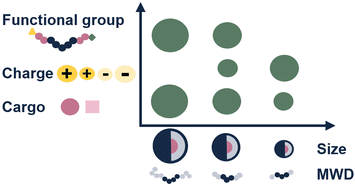While the advent of modern analytical technology has allowed scientists to determine the complexity of mixtures, it also spurred the demand to understand these sophisticated mixtures better. Chemical transformation can be used to provide insights into properties of complex samples such as degradation pathways or molecular heterogeneity that are otherwise unaccessible. In this article, we explore how sample transformation is exploited across different application fields to empower analytical methods. Transformation mechanisms include molecular-weight reduction, controlled degradation, and derivatization. Both offline and online transformation methods have been explored. The covered studies show that sample transformation facilitates faster reactions (e.g. several hours to minutes), reduces sample complexity, unlocks new sample dimensions (e.g. functional groups), provides correlations between multiple sample dimensions, and improves detectability. The article highlights the state-of-the-art and future prospects, focusing in particular on the characterization of protein and nucleic-acid therapeutics, nanoparticles, synthetic polymers, and small molecules.
